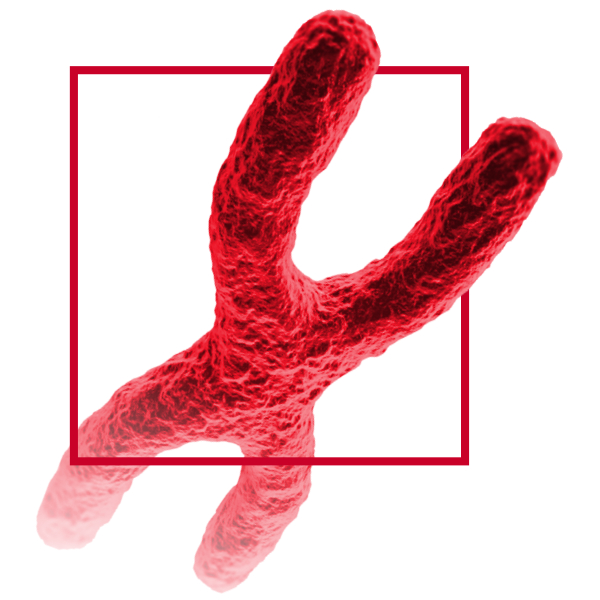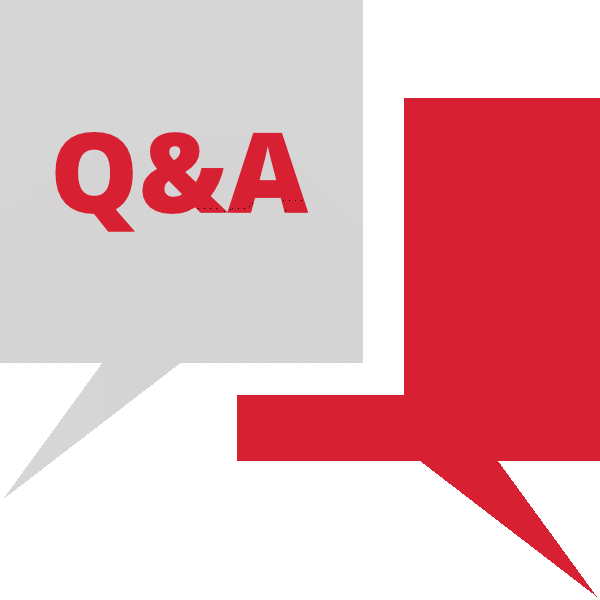Karyogram Creation
Chromosome Processing
Reducing Turnaround Times and Simplifying Workflows.

- Accommodate a diverse array of banding techniques, such as G-Banding and Q-Banding, ensuring compatibility with various methods.
- Utilize various specimens for banding analysis, including amniotic fluid, peripheral blood, chorionic villus, and bone marrow, without limitations based on specific diseases.
- Leverage the efficiency of DNN-based tools to significantly reduce the manual effort and time required to prepare karyograms, enhancing overall productivity.
- Enjoy an intuitive and user-friendly graphical user interface that combines ease of use with powerful processing tools, enhancing flexibility and efficiency in the karyotyping process.
- Maintain a continuous log of processing steps, ensuring traceability and reproducibility, and enjoy unrestricted access to the original images for review.
- Manage cases and images efficiently with Neon, our sophisticated image management tool, designed to streamline your workflow and enhance data organization.

Ikaros software revolutionizes the karyotyping process by combining real-time image transfer, versatile banding support, advanced DNN-based image processing, and a user-friendly interface. It supports diverse specimen types and provides robust tools for cytogeneticists, making karyogram creation more efficient and accurate.
The Ikaros software integrates an intuitive graphical user interface with a range of potent processing tools, delivering the necessary flexibility in the process of karyogram creation. Engineered to reduce the number of interactions, Ikaros holds the potential to decrease the time needed for both analysis and result review compared to a manual workflow.
Ikaros offers tools to assist cytogeneticists in evaluating metaphases prepared using various prevalent chromosome banding methods (such as G-Banding and Q-Banding). It also supports diverse specimen types, including peripheral blood, bone marrow, amniotic fluid, and chorionic villi.

DNN-Based Image Processing
The latest versions of Ikaros by MetaSystems have integrated features based on Deep Neural Networks (DNNs), designed to assist cytogeneticists in segmenting metaphase chromosomes and classifying them within the karyogram. This cutting-edge technology supersedes the respective algorithms used in earlier versions of Ikaros, offering the potential to markedly decrease the number of interactions needed in comparison to the former workflow.
Like its predecessors, the latest versions of Ikaros support users in separating chromosomes in the metaphase. However, the adoption of a DNN-based workflow marks a notable progression in this process, aiming to lower the rate of segmentation errors and consequently lessen the need for manual corrections by the users. This introduces the deployment of the new DNN-based tools as an additional means to achieve time savings in metaphase processing.
In the process of karyogram creation, another traditionally laborious task is the classification of chromosomes into their appropriate classes on the karyogram form. DNN technology also aids in this step, reducing the need for manual input and corrections. As a result, cytogeneticists are presented with an initial karyogram draft. This draft serves as a working basis for the adjustments and evaluation performed by the experienced professional.
Ikaros software, now enhanced with DNN technology, offers a more efficient approach to karyogram creation, reducing manual effort and time while maintaining the reliability and robustness that users have come to trust.
Choose between manual one-click image capture with Ikaros, or fully automated image acquisition with Metafer, depending on your workflow needs and lab size.
Manual Image Capture
Ikaros software is designed to enhance the efficiency of manual image capture by facilitating seamless transitions between different capture settings, such as brightfield and fluorescence. This feature allows users to easily switch between these settings, ensuring a smooth and uninterrupted workflow. Whether capturing images in brightfield or fluorescence, the software maintains consistent performance, enabling cytogeneticists to focus on analysis rather than technical adjustments.
Users can capture images with a single click, benefiting from automatic contrast enhancement and the selection of the optimal focus plane. This functionality ensures that each image is of the highest quality, reducing the need for post-capture editing and saving valuable time. The combination of these features allows Ikaros to support a wide range of cytogenetic applications, making it a versatile tool for various laboratory settings.
Automated Image Acquisition
An automated imaging system, based on Metafer Metaphase, can significantly streamline the process of metaphase finding and imaging. This installation automatically locates metaphases on samples, adapting easily to various preparation and staining methods, and displaying detected metaphases in an overview gallery for easy relocation and detailed inspection.
Metafer Metaphase offers sophisticated training and optimization routines, making it highly adaptable to different cell types and preparations. The metaphase gallery provides a quick overview, allowing users to select or reject metaphases efficiently. Additionally, quality scores can be assigned automatically, ensuring the best metaphases are selected for further analysis.
Deep Neural Networks (DNNs) enhance the detection of challenging metaphases, improving the overall quality and count of detected metaphases. This technology can be added to existing Metafer-based systems, boosting their performance in difficult scenarios.
Automated image acquisition further increases efficiency by generating high-resolution metaphase images. Customized acquisition parameters and automated systems, like the AutoOiler and SlideFeeder x80, allow for high-throughput imaging, enabling the processing of up to 800 slides without supervision. This integration ensures continuous operation, even during nights and weekends, significantly enhancing laboratory productivity.
Read more about automated Metaphase Detection here.

What is Ikaros software?
Ikaros is advanced software designed for generating karyograms using digital microscope images from cultured and stained cell specimens in their metaphase stage. In addition, Ikaros offers convenient tools for manual image capture, such as one-click capture, automatic contrast enhancement, and the selection of the optimal focus plane.
How does Ikaros utilize Deep Neural Networks (DNN)?
Ikaros uses DNN technology for chromosome separation and assignment in unprocessed metaphase images. This minimizes manual intervention and enhances accuracy, providing an initial karyogram draft for further professional evaluation. By integrating DNN-based tools, Ikaros significantly reduces the manual effort and time required to prepare karyograms. The software’s intuitive interface and advanced processing capabilities streamline the karyotyping process, enhancing overall productivity.
Does the new Ikaros equipped with DNN capabilities fully automate the creation of karyograms?
No. In the new Ikaros, the DNN capabilities facilitate the segregation of chromosomes and their categorization into the appropriate karyogram classes. This process yields a preliminary suggestion that requires further assessment and potential modification by a skilled user. Ultimately, the cytogeneticist is responsible for creating the final karyogram and conducting its analysis.
Can I change the results of the DNN-based chromosome segregation and assignment?
Answer: Yes, once Ikaros generates a karyogram proposal via its DNN features, users have the possibility and the responsibility to review and, if needed, amend this proposal. They have access to the same respective tools that have been present in earlier versions of Ikaros. Nevertheless, when an appropriate DNN is utilized, it is anticipated that the need for manual adjustments will be considerably reduced compared to the machine learning algorithms used in prior versions.
How much time will the new DNN-based functions save me per case or per karyogram?
The response to this inquiry is contingent on various elements. Factors such as the nature of preparations, working methods employed, and the time allocated for result verification and reporting all play crucial roles in determining processing time. Nonetheless, insights from laboratories that have adopted the new feature indicate a noticeable decrease in case processing times, attributed to the diminished requirement for manual intervention in contrast to the algorithms previously in use.
Is it necessary to replace my current Ikaros installations to access the new functionalities?
No, there is no need for a replacement. Starting with version 6.3, every new version of Ikaros comes ready for DNN-based chromosome separation and classification and can be upgraded to include this feature. For efficient handling of DNN operations, an additional graphics card is needed to facilitate the computations. This card can be installed directly in the workstation or in a distinct system. For further information on the technical options available, please feel free to get in touch with us.
How does Ikaros ensure the traceability of processing steps?
Ikaros maintains a continuous log of all processing steps, ensuring traceability and reproducibility. Users also have unrestricted access to the original images for review and documentation purposes.
Can I customize the processing settings in Ikaros?
Yes, Ikaros offers customizable processing settings, allowing users to tailor the software’s functionality to their specific needs and preferences.
How does Ikaros handle data organization and case management?
Ikaros installations include Neon, a tool for streamlined image and case management. Neon organizes all image content and related case data, ensuring systematic and protected access from initial images to final analysis by experienced professionals.
What features does Neon offer for results reporting?
Neon organizes case data into comprehensive reports using robust data summarization and graphical report editing tools. Their built-in statistical query engine allows for cross-case statistical analysis, enhancing the richness and utility of the reports produced.
If you have any additional questions or need further information, please do not hesitate to reach out to us. We are here to help you enhance your lab's capabilities with our cutting-edge technology.
Metafer 4.3 and Ikaros 6.3 are classified as in vitro diagnostic medical devices (IVD) in the European Union in accordance with In Vitro Diagnostics Regulation (EU) 2017/746 or In Vitro Diagnostic Medical Device Directive 98/79/EC, respectively, and carry the CE label unless otherwise indicated. Use all MetaSystems IVD products only within the scope of their intended purpose.
MetaSystems products are used in many countries worldwide. Depending on the regulations of the respective country or region, some products may not be used for clinical diagnostics.
Some hardware components supplied by other manufacturers are not included in MetaSystems IVD products and are therefore not IVD medical devices.
Please contact us for further information.










